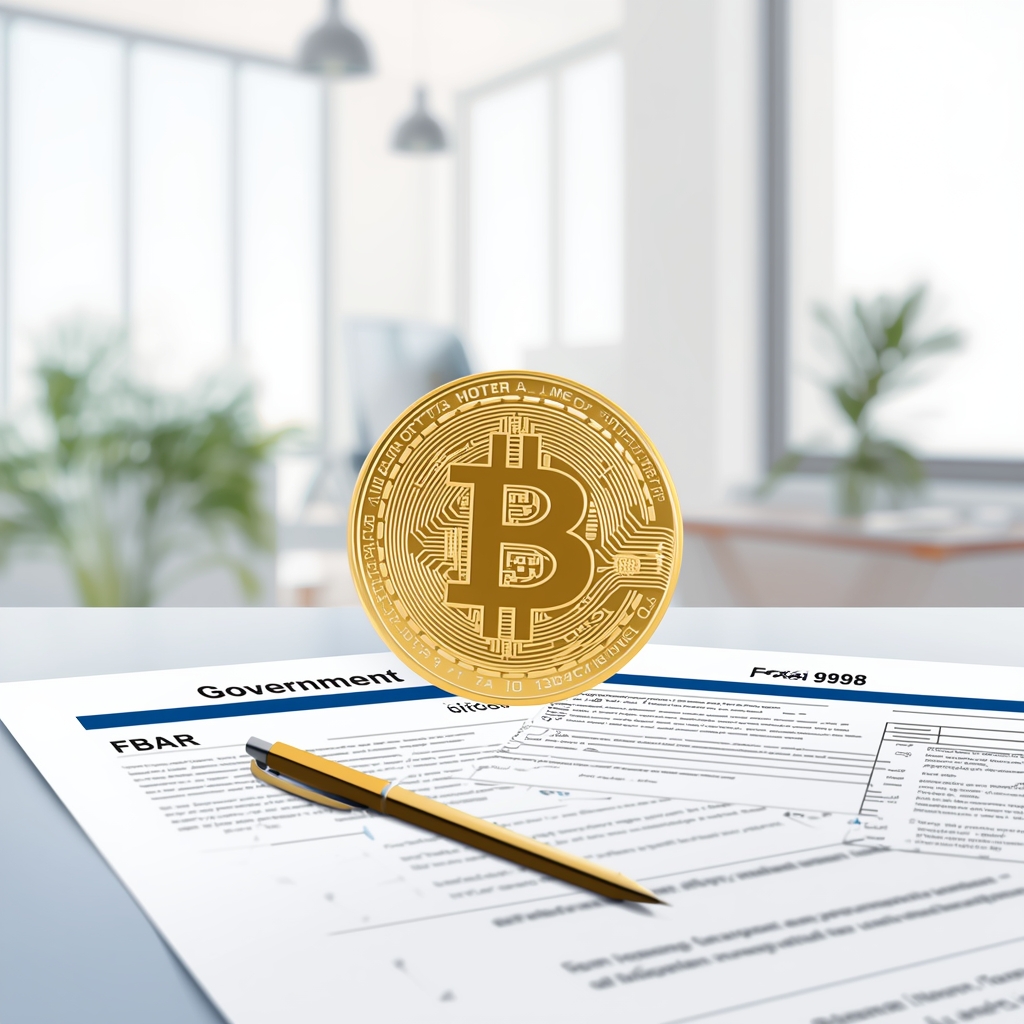Do You Need to Report Crypto on the FBAR or Form 8938?
2025-08-12 14:44:52

U.S. taxpayers with foreign crypto accounts may have to file FBAR or Form 8938. Learn when digital assets trigger IRS and FinCEN reporting.
With the rapid rise of cryptocurrency ownership around the world, U.S. taxpayers living abroad or holding assets offshore are asking one key question: Do I need to report crypto to the IRS or FinCEN?
The answer depends on where your crypto is held, how you access it, and what type of account it's in.
Let’s break down the current reporting rules for digital assets and how they relate to the FBAR and Form 8938.
Quick Overview: FBAR vs. Form 8938
|
Form |
Overseen By |
What It Reports |
Trigger Threshold |
|
FBAR (FinCEN 114) |
FinCEN |
Foreign financial accounts |
$10,000 aggregate value |
|
Form 8938 (FATCA) |
IRS |
Specified foreign financial assets |
$50,000 to $600,000 depending on filing status and location |
Both forms were created to help U.S. authorities track offshore assets. Crypto has introduced new ambiguity — but that’s changing.
Does Crypto Go on the FBAR?
Not Yet — But It Might Soon
As of now, virtual currency held in personal wallets or directly on a blockchain does not trigger FBAR reporting.
However, FinCEN has already signaled a change is coming. In January 2021, it published a notice stating its intent to require FBAR reporting for cryptocurrency held in foreign accounts — such as international exchanges.
While that rule hasn’t taken effect yet, it’s wise to act as if it might.
FBAR Reporting May Apply If:
-
You hold crypto in a foreign exchange account (e.g., Bitstamp, Binance International)
-
The account is custodial, and you can convert to fiat or hold other financial assets
If the foreign account acts like a bank or brokerage, and its value (crypto + fiat) exceeds $10,000 at any point, you should consider filing the FBAR as a precaution.
Does Crypto Go on Form 8938?
Yes — In Many Cases
The IRS has taken a clearer stance: virtual currency can be a specified foreign financial asset.
Form 8938 reporting is required when:
-
Crypto is held in foreign exchange accounts
-
You exceed the total threshold for specified foreign assets
However, if your crypto is stored in a cold wallet, USB drive, or non-custodial wallet (e.g., MetaMask or Ledger), and it’s not tied to a foreign financial institution, Form 8938 may not apply.
But once again — if you're using a foreign exchange, such as:
-
Binance (non-US)
-
KuCoin
-
Bitstamp
-
Bitfinex
-
Gate.io
You should assume Form 8938 applies.
What If You Use a U.S.-Based Exchange?
If your digital assets are held through Coinbase, Kraken (U.S.), or Gemini, and all activity is domestic, then neither FBAR nor Form 8938 applies.
However, you still need to answer “Yes” to the crypto question on Form 1040 if you bought, sold, traded, or earned crypto during the year.
Example Scenarios
Scenario 1: Foreign Exchange Account
Maya lives in France and trades crypto through Binance.com. She has $15,000 in BTC and ETH.
File Form 8938
No FBAR (yet, but soon)
Scenario 2: Cold Wallet
Omar stores $50,000 in ETH on a Ledger wallet he keeps in Dubai.
No FBAR
No Form 8938 (unless wallet is tied to a foreign financial institution)
Scenario 3: Mixed Use
Sasha uses Coinbase (U.S.) for most crypto but also holds $8,000 on Bitstamp and $4,000 on Kraken International.
Consider filing FBAR and Form 8938
Total foreign account value > $10,000
Penalties for Non-Reporting
If crypto becomes subject to FBAR and you fail to file, penalties can be severe:
-
Up to $10,000 for non-willful failure
-
Up to $100,000 or 50% of the account value for willful failure
For Form 8938:
-
$10,000 base penalty
-
Up to $50,000 for continued failure after IRS notice
And if the IRS thinks you earned income from crypto (via staking, selling, airdrops) and didn’t report it, additional tax, interest, and accuracy penalties may apply.
Will the IRS Ask About My Crypto?
They already do.
Every Form 1040 now includes a prominent crypto question:
“At any time during the year, did you receive, sell, send, exchange, or otherwise acquire any financial interest in any virtual currency?”
This is a yes/no question. If you answer incorrectly, it can be seen as intentional misrepresentation.
How to Protect Yourself
-
Report conservatively
If you’re unsure whether your crypto exchange counts as a foreign financial account, it’s safer to file. -
Track peak account values
FBAR is triggered by the highest value during the year — not the average. -
Get help from a crypto-savvy tax advisor
Not every CPA understands DeFi, cold wallets, or foreign custodians. Look for someone who does. -
Keep records of trades and transfers
This includes fiat conversions, wallet addresses, and transaction logs.
Final Thoughts: Crypto Is on the IRS’s Radar
The days of crypto flying under the radar are over. With new regulations on the horizon and increasing global cooperation, the IRS is zeroing in on digital assets — especially those held overseas.
Even if FinCEN hasn’t formally required FBAR filing for crypto yet, their public notice makes it clear: it’s coming. In the meantime, Form 8938 already covers many situations where foreign crypto accounts must be disclosed.
If you're a U.S. person with crypto abroad, the best approach is to stay ahead of the curve — and report early.
M.Daniyal